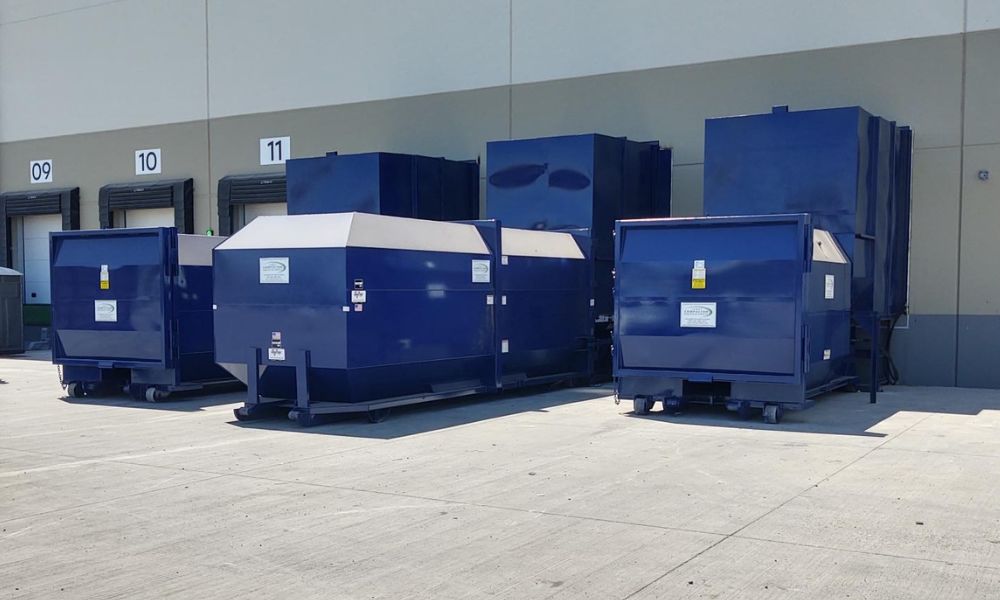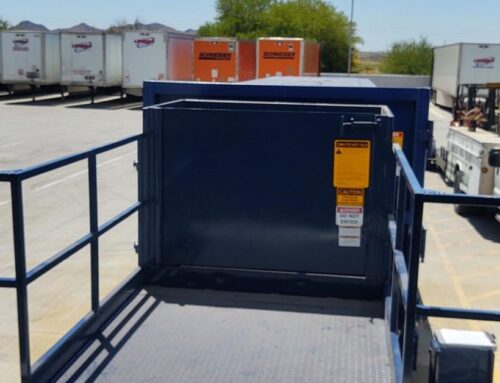
Choosing the right equipment for managing waste and recyclables is crucial for businesses aiming to optimize their operations and minimize their environmental footprint. When it comes to compacting waste or recyclables, two primary options come to mind: trash compactors and balers.
Both serve the purpose of reducing waste material volume, yet they cater to different types of waste and serve distinct operational needs. Discovering the differences between trash compactors and balers will help you to make an informed decision on which is right for you.
Understanding Trash Compactors
Trash compactors can compress mixed waste materials into smaller, more manageable sizes. This process not only reduces waste collection frequency but also helps maximize space efficiency within waste disposal areas. Compactors are ideal for businesses that generate significant amount of general waste, including food, mixed recyclables, and other non-recyclable materials. They help lower hauling costs and facilitate a cleaner, more organized waste management system.
Delving Into Balers
Balers compress recyclable materials like cardboard, paper, plastics, and metals into dense, manageable bales. These are not only easier to transport but also fetch a higher price when sold to recycling facilities. For businesses that produce a large volume of recyclable materials, investing in or considering a baler rental can be a cost-effective and environmentally friendly solution. Baling recyclables can significantly reduce waste disposal costs and contribute to a company’s sustainability goals.
Operational Efficiency
When evaluating trash compactors and balers based on operational efficiency, it’s essential to consider the nature and volume of waste your business produces. Compactors offer a convenient solution for mixed waste to reduce pickup frequency and enhance space utilization.
For large quantities of recyclables, balers streamline the recycling process, improve material handling, and potentially generate revenue. The choice between the two depends on your waste stream composition and operational priorities.
Environmental Impact
The environmental benefits of reducing waste volume are substantial. By compacting waste, trash compactors decrease landfill space usage and the associated environmental degradation. Balers contribute to the recycling industry’s efficiency, ensuring the reuse of valuable materials instead of letting them end up as landfill waste. Whichever option works best for you, reducing the volume of waste is a more sustainable and responsible business practice.
Cost Considerations
Cost is critical in deciding whether a trash compactor or a baler is right for you. You must consider the initial investment, operation, maintenance costs, and potential revenue from recyclables. While compactors might have lower upfront costs, the long-term savings and revenue generated from recycling with a baler can be more financially beneficial for businesses producing a high volume of recyclable materials.
Deciding between the two boils down to analyzing your waste management needs, operational efficiency goals, environmental impact concerns, and budget constraints. Assessing your specific situation and preferences will guide you to the right choice, ensuring efficient waste management tailored to your business’s unique requirements.


